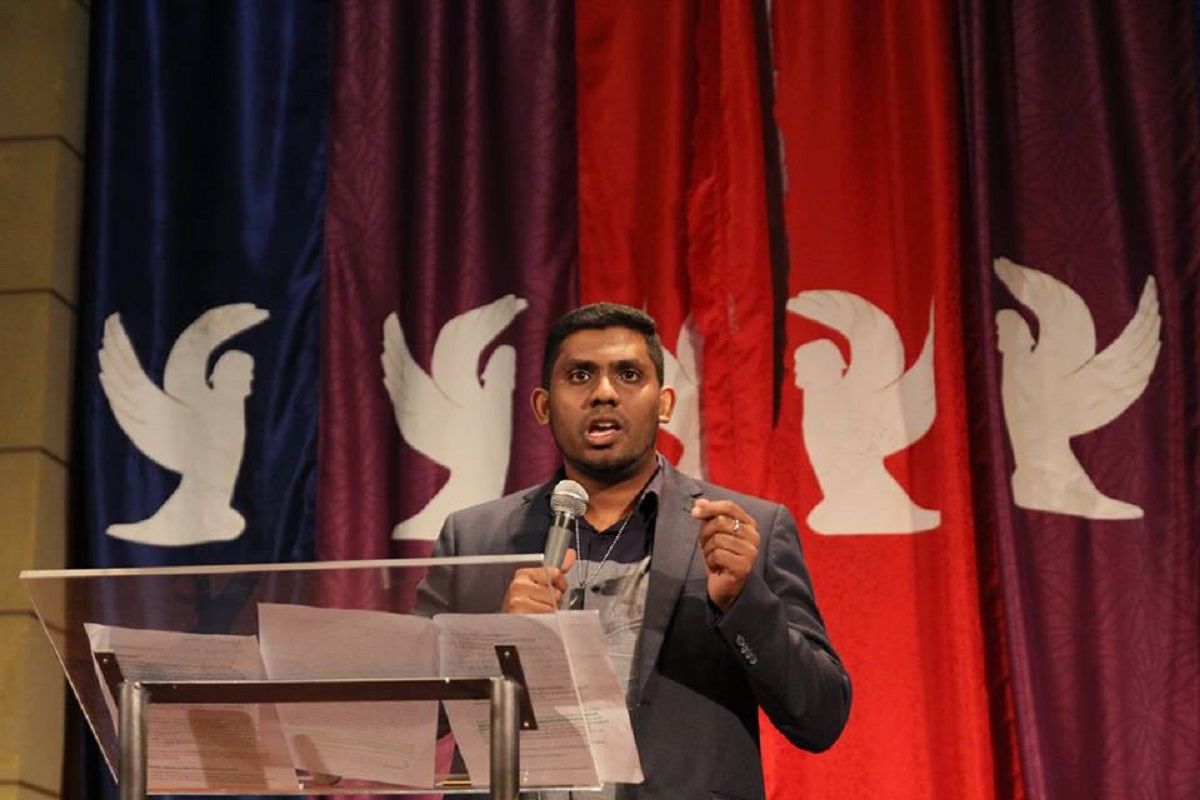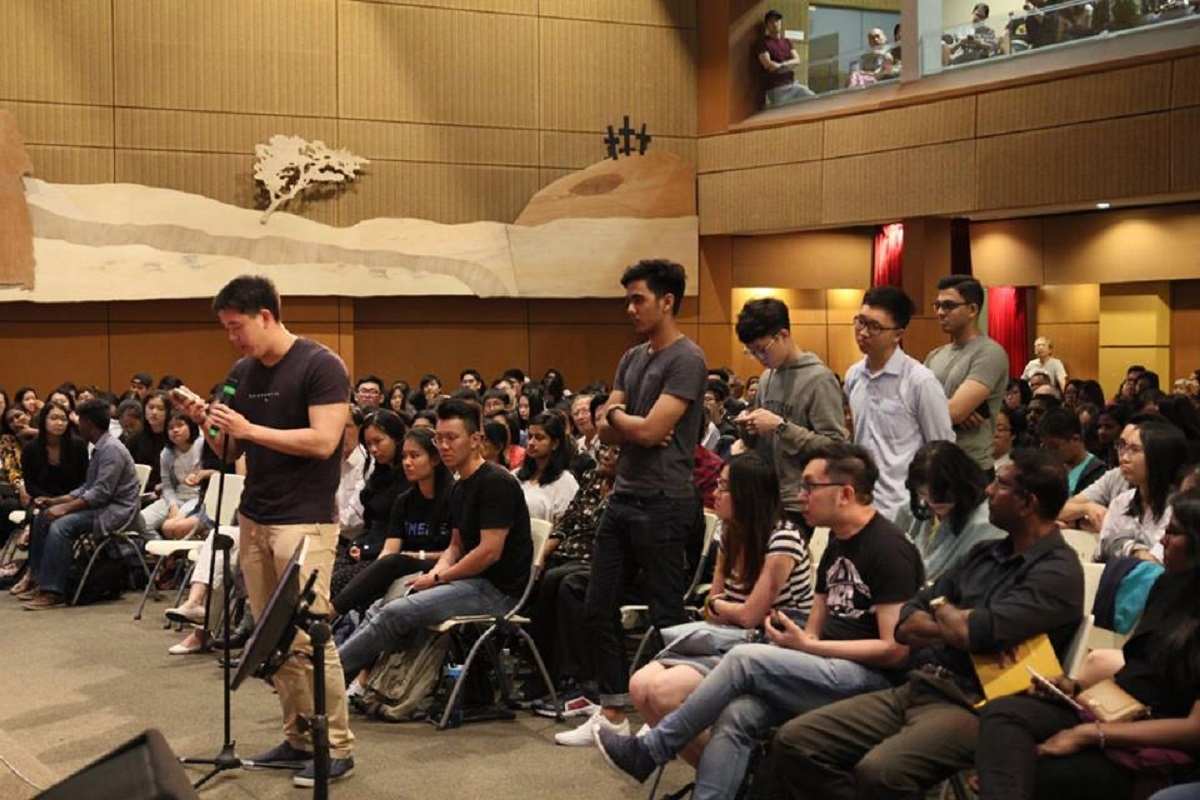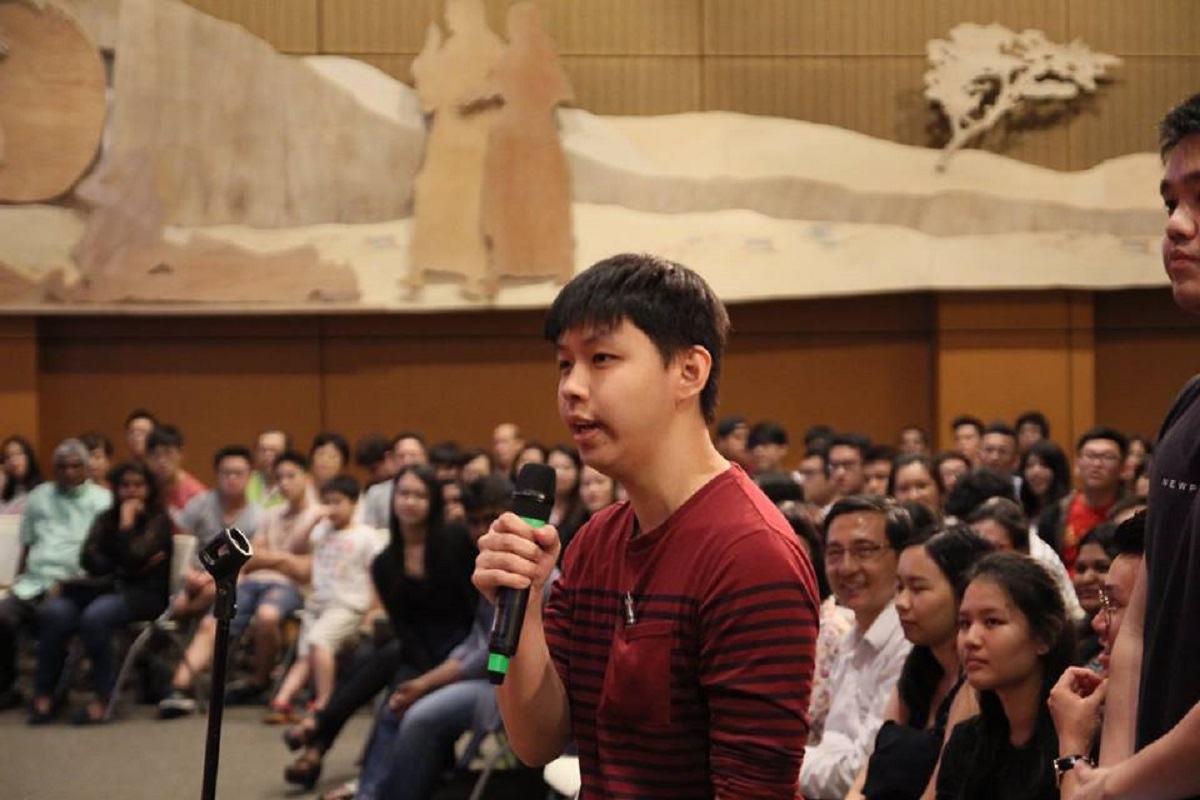Answering Apologetics
Audio Version: Answering Apologetics
Audio PlayerBy Christopher Quah
What is apologetics? According to Wikipedia, it is the religious discipline of defending religious doctrines through systematic argumentation and discourse.
Samuel Nesan, one of Malaysia’s most prominent apologist believes that it is crucial that all believers in Christ should have some knowledge about apologetics.
He elaborated on this, that when one reads the bible, one can find ways in which apologetics were used in the delivery of the message.

He quoted, instances in both the Old and the New Testament where apologetics were used for example in the book of Psalms when David said “‘you would not abandon me in sheol.’ Is he referring to himself? The bible recorded that David died and was buried among his people. So, who is David speaking about? He was using apologetics to refer to Jesus. In the New Testament, the Apostles Peter and Paul during their discourses to the early church also incorporated apologetics in their delivery and that was done to make the messages more powerful and in this, Paul did particularly well in Acts 17 when he used the established idea of Greek philosophers to relate to his audience in Athens. He said ‘for your own philosophers said that we are His (God) offspring’. He used everyday examples to interact with the community which he spoke. So, I am just saying that our sermon needs to be more relatable in that way with the community out there,” commented Samuel.
Samuel then went on to share some of his tips and pointers with Asian Beacon on the subject of apologetics which he hopes will benefit readers in the event they are faced with tough questions or the need to engage in it. Here are some of the tips in approaching some of the hard questions about his beliefs that he has been asked.
DON’T PREACH. WAIT FOR THE QUESTION.
“Sometimes it’s the same questions but come from different angles. I usually allow them to ask the first question in apologetics.” Samuel said.
Questions can tell a bit about the person. They can help us understand the person from his point of view and his way of thinking.
“I would say that we are not defending God because God doesn’t need defending. We are helping people to understand God. So, God doesn’t need defending but people need help in understanding. So that’s what we are trying to do. Sometimes they don’t get concept in the Christian faith,” Samuel explained.
He added that by hearing out the question or questions out first you gain time to prepare your points and deliver them efficiently. If you are to state your facts first in a discourse and wait for questions it will be a lot harder, as now you will have to defend the points you have presented.
For Samuel, he stated that there are a few common questions that are always been asked, and the quick answers that he provides might be helpful in moments when you feel you are caught off guard.

ANSWER A QUESTION WITH ANOTHER QUESTION
“I recently had someone who asked me this question, an atheist who told me that the Bible is basically the words of men, as it was written by men, so how could he be expected to take it seriously,” Samuel recalled.
He explained that he countered the man’s question with another question.
“If you say that the Bible is men’s words and you don’t take it seriously, aren’t you a man yourself? So why should I take your words seriously?” Samuel said.
Another thing that Samuel recommended is that if you do not understand something, don’t be afraid to ask.

NEVER ASSUME THE QUESTIONS
“When someone asks a question or gives me his or her opinion which is unclear, I would ask them “What do you mean by that?”. I won’t assume the meaning of their words. This is because most of us have preconceptions in our mind of what the person is asking. But, he might mean something else. So, they will not appreaciate the answer you give them since it is a presumptuous understanding of the words based on the definition from our point of view, and not theirs. Also, when you ask them back, it also makes them think back and brings them to certain realisation by themselves,” Samuel explained.
“For example, A Hindu told me that all religions ask us to do good, so what is so special about Christianity? I replied his question with another question. “What do you mean by good? Is it to be kind? How do you define it?” So, you see when I asked him that question in return it was not because I was buying time to think for an answer but I was trying to let him think deeper about his own question. They must realise many of their own facts are made up of their own assumptions,” Samuel hinted.
BEGIN WITH A QUESTION
He said that in apologetics, even if you are not good in answering questions, you can be good in asking the questions instead. In fact, Samuel pointed out, there are two questions that he always uses very effectively.
“If you asked people these two questions: “What do you mean by that? And, how did you come to the conclusion?” they usually will get the asked to think deeper about his own search for the answer. Even if he is not satisfied with the answer it will always make the person to try and to figure out what really is going on,” Samuel explained.
“I also would ask, where do you get the conclusion, the idea that they are wrong? This makes the inquirer to realise that some of their own views are base on their own assumption. If they really evaluate themselves, they will realised they have no facts. So even though they are not satisfied with the answer, the question will really bother them and keep them thinking. I believe this approach is very effective to break down barriers instead of telling them straight up that they are wrong,” he explained.

THE FOUR BURNING QUESTIONS
Samuel stated that there are some tips that are very useful in answering questions. Here are four effective questions structures which he usually uses in his apologetics.
- Does it bother you?
If I am going to evangelise, I would usually start with the question, does it bother you?
An example to this would be “Does it bother you that Christians say you will go to hell if you don’t believe in Jesus?”
That is how I would approach someone whom I am felt led to share the gospel with. Asking them this question usually lowers their defence, instead of directly telling them, if you don’t believe in Jesus you’ll go to hell. I’ve done this many time, and instead of getting angry, they will share their experience or point of view.
Base on my feedback, many of the unbelievers would tell me it does bother them. And they feel that Christians can be very arrogant at times. This would be the best time to go to question 2 which is,
2. What do you mean by that? Or why do you say so?
Asking this question makes the person prod deeper into his understanding of his own question.
Coming back to the example, of the statement that Christians can be very arrogant. Why do you think so?
Once again from my feedback the common answer would be “They keep saying there is only one truth. That Jesus is the only way to God, and no other way,”.
Here I ask them then “what do you mean by truth?”.
As you can see here, each question is meant to get the person to look deeper in their own beliefs and assumptions.
Once I have got their full engagement, I will ask them the third line of questions which is

3. How did you come to that conclusion?
“How did you get the conclusion that there is more than one truth?”
By now I am the asker and they are the ones who have to answer, my questions. If you have noticed this way of answering questions is how the Lord Jesus would answer those who asked him questions. He would very often respond with another question which would make the asker come to a sudden realisation. Once they begin to think twice about their stance, you catch and hook them with the fourth type of question
4. Have you considered?
Have you considered that Jesus is the truth?
It is at this part where I throw in the gospel. I don’t share the gospel at the beginning as there are many layers of defence that a person has set up in their mind. But once you achieve a sense of empathy, they will be more open to hear the gospel. You have to help them reach to a place where they would consider to hear the gospel for themselves.
